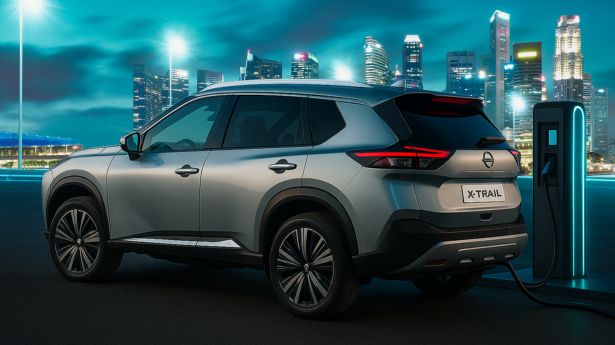
Nissan’s Hybrids Set To Steer Africa Toward An Electric Future
Around the world, electric vehicles (EVs) are rapidly gaining ground; yet, many South African drivers still view the switch as daunting. With concerns about high costs, limited charging stations, and fears of running out of power, adopting full electric cars feels like a leap too far. But what if there was a smarter, easier way to bridge the gap? Nissan is betting on its innovative hybrid technology, which could make the transition to electric driving smoother, more affordable, and perfectly suited to South Africa’s unique challenges.
The Japanese automaker has confirmed that it’s exploring the rollout of its e-Power hybrid technology in South Africa, a move aimed at giving local drivers a realistic stepping stone toward full electrification. The initiative is currently under review as Nissan assesses key factors, including customer demand, affordability, and market readiness.
Why Hybrids Make Sense For South Africa
Nissan’s move to introduce hybrid vehicles, powered by its e-Power technology, takes a clear-eyed look at the realities on the ground. South Africa faces several hurdles in EV adoption: relatively low average incomes, high import taxes and duties, inconsistent electricity supply, and a still-developing public charging network. These issues mean many drivers aren’t quite ready for full battery electric cars.
The company has already rolled out its e-Power hybrids in countries such as Morocco, Egypt, and Tunisia, with promising results. South Africa is the natural next step for this approach, with Nissan positioning hybrids as a practical bridge technology that offers a taste of electric driving without the full challenges of EV ownership. It also gives the market time to develop the necessary infrastructure and policies to support an EV ecosystem, while allowing drivers to enjoy the benefits of electrified mobility today.
Ramy Mohareb, Communications Head for Nissan Africa, sums it up well: “You don’t need extensive charging infrastructure, and the battery cost is far less than today’s full EVs. Plus, there’s no range anxiety. This is the right technology to transition to full EVs in Africa.”
What Exactly Is Nissan’s e-Power Technology?
At first glance, Nissan’s e-Power system might sound like a typical hybrid, but it’s anything but ordinary. In most hybrids, the petrol engine and electric motor take turns driving the wheels. e-Power works differently. Here, the petrol engine never powers the wheels directly; it acts solely as a generator, creating electricity that charges a small battery. The battery then supplies power to an electric motor, which in turn drives the vehicle.
The technology, first introduced in Japan in 2017 on the Nissan Note, provides drivers with the smooth, responsive feel of an electric car, without any range anxiety or the need to plug in. But beyond convenience, e-Power comes with a host of practical advantages that make it ideal for everyday driving:
- Nissan’s e-Power system delivers outstanding fuel efficiency, as the petrol engine operates within its most efficient range, reducing fuel consumption and overall running costs.
- It produces lower emissions because the engine operates under optimal conditions, making it a cleaner and more sustainable choice for everyday driving.
- Drivers enjoy instant torque and smooth acceleration, with power delivered directly through the electric motor for a quiet and responsive drive that feels like a full EV.
- There’s no need to worry about charging since refuelling with petrol keeps the vehicle running without any range anxiety.
- The intelligent energy management system ensures consistent performance by seamlessly balancing power between the engine, battery, and motor in all driving conditions.
A Confident Step Forward
The timing of Nissan’s hybrid exploration in South Africa couldn’t be more fitting. The country’s automotive landscape is shifting, with manufacturers and policymakers recognising the need for a gradual transition toward electrification. Nissan’s decision signals strong confidence in the local market and a long-term commitment to supporting that change.
At the September 2025 launch of the Nissan X-Trail and Magnite Kuro editions in Johannesburg, company executives reaffirmed that Africa remains a key focus region, even amid a significant global restructuring phase. The potential introduction of e-Power models forms part of this growth mindset, offering technology that fits South Africa’s current realities while preparing consumers for the electric future ahead.
Building A Bridge To The Future
The introduction of e-Power could significantly reshape perceptions of electric mobility across the country. It would allow more drivers to experience the benefits of electrified driving, reduce emissions in congested cities, and prepare consumers for the eventual shift to full EVs.
In a way, the company’s philosophy of meeting customers where they are, and leading them forward step by step, is precisely what South Africa needs to make the EV transition smoother and more sustainable.
Keep following our blog for more insights, updates, and stories about all things Nissan.

